Dana Gulley ’17 is a consultant in private practice. She was the valedictorian of the Class of 2017. She was interviewed by Isabel Russell, an undergraduate at UVM
What have you been up to since graduation?
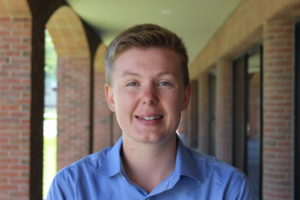 Making a whole new life for myself! I launched my own consulting practice, Third Peak Solutions, and spent much of the fall working from the road while my partner and I traveled around the west (Washington, Oregon, Montana, Wyoming, Colorado and New Mexico) figuring out a new place to call home. In November my partner landed a position at a very cool organization called Adventure Scientists and just after Thanksgiving we moved to Bozeman, Montana. After spending 30 years living in the Northeast, moving to big sky country is a pretty big life change. It’s somewhat terrifying, but mostly thrilling. Now that I’m settling into my new home, I’m focused on defining exactly what Third Peak Solutions does: organizational development consulting with conservation non-profits? Sustainable strategy consulting with for-profits? A little bit of both?
Making a whole new life for myself! I launched my own consulting practice, Third Peak Solutions, and spent much of the fall working from the road while my partner and I traveled around the west (Washington, Oregon, Montana, Wyoming, Colorado and New Mexico) figuring out a new place to call home. In November my partner landed a position at a very cool organization called Adventure Scientists and just after Thanksgiving we moved to Bozeman, Montana. After spending 30 years living in the Northeast, moving to big sky country is a pretty big life change. It’s somewhat terrifying, but mostly thrilling. Now that I’m settling into my new home, I’m focused on defining exactly what Third Peak Solutions does: organizational development consulting with conservation non-profits? Sustainable strategy consulting with for-profits? A little bit of both?
Why did you choose to attend this MBA program?
I’m passionate about environmental conservation and eager to see this work improved by a) building more effective and sustainable non-profits and b) engaging the business community to do their part in innovative and impactful ways. The Sustainable Innovation MBA program has the values that match my own and attracts a community of students, faculty and business partners that we must lean into if this important work is going to gain the momentum it deserves.
What was your favorite part about the experience?
Developing relationships with the people in my cohort academically, professionally and personally. As I work to build my own practice, I’m eager to emphasize team work in the way that The Sustainable Innovation MBA modeled it. Working with a team strengthens work products and makes the experience more rewarding.
How are you applying the tools/skills you learned in the program, post-MBA?
I’m taking risks, staying true to my desire to transform business as usual, focused on building teams to tackle big problems, and figuring out how to balance an emphasis on non-profits and for-profits.
What would you tell someone who is considering the Sustainable Innovation MBA?
The program is not for everyone. You will not emerge with a clear set of pre-described next steps for making the world a better place. Instead, you will have a mindset, a network, and a toolkit of skills that will enable you to be entrepreneurial in building your own, unique path forward. The Sustainable Innovation MBA will serve you if you’re someone who is committed to keeping your brain switched on to constantly find better ways to make a difference. It’s a degree for movers and shakers.

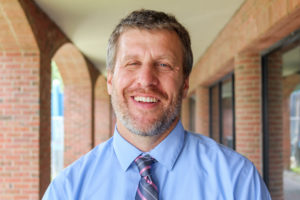 It’s a fantastic opportunity for those seeking to pivot mid-career. Prior to The Sustainable Innovation MBA, I worked in agriculture and non-profits and I had reached a point where opportunities for learning and advancement had flattened out. As a working parent of two young girls, the thought of being in graduate school for years on was overwhelming. The one-year curriculum is perfect for those looking to re-launch their careers quickly.
It’s a fantastic opportunity for those seeking to pivot mid-career. Prior to The Sustainable Innovation MBA, I worked in agriculture and non-profits and I had reached a point where opportunities for learning and advancement had flattened out. As a working parent of two young girls, the thought of being in graduate school for years on was overwhelming. The one-year curriculum is perfect for those looking to re-launch their careers quickly.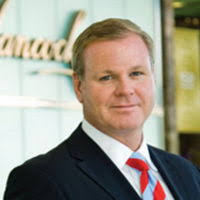 Mr. Arnott describes his background as somewhat atypical among public company CEOs in that he had lots of operations experience, but relatively little formal leadership training, when he started as CEO. His style is therefore largely self-taught, but I was not surprised that his sentiments echoed what The Sustainable Innovation MBA has taught us so far.
Mr. Arnott describes his background as somewhat atypical among public company CEOs in that he had lots of operations experience, but relatively little formal leadership training, when he started as CEO. His style is therefore largely self-taught, but I was not surprised that his sentiments echoed what The Sustainable Innovation MBA has taught us so far.
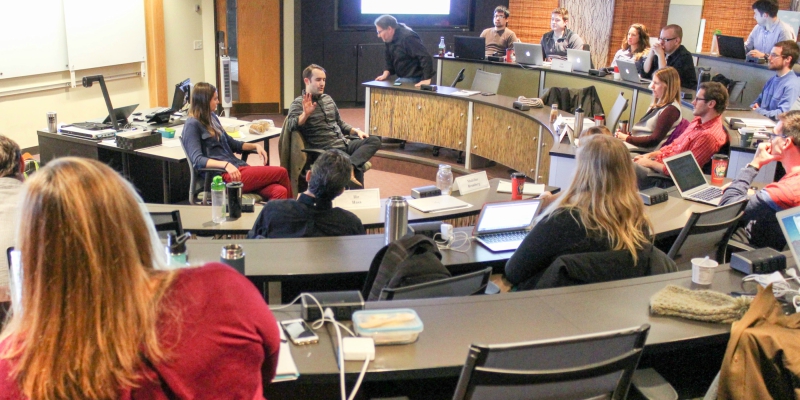
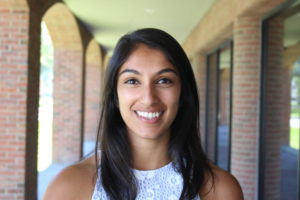
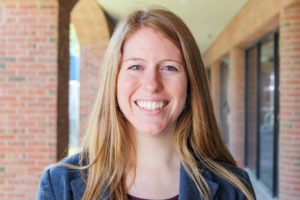
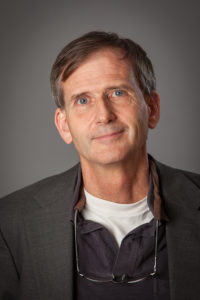 What is pitching? It is the art and skill of describing one’s project, entrepreneurial venture, or oneself in the minimal amount of words that communicates your message to the listener. For startups and entrepreneurs, it is a skill that can be developed and honed over time with practice and feedback.
What is pitching? It is the art and skill of describing one’s project, entrepreneurial venture, or oneself in the minimal amount of words that communicates your message to the listener. For startups and entrepreneurs, it is a skill that can be developed and honed over time with practice and feedback.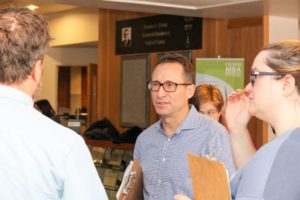 On the last day of November, the students of The Sustainable Innovation MBA hosted their annual Business Model Trade Show in the bustling lobby of Kalkin Hall. Visitors toured booths, sampled products and learned about the creative enterprises students have been working on throughout Module 2. For the students, it was a great opportunity to hone their elevator pitch and get feedback for their business ideas from noted visitors like venture capitalist and UVM alum
On the last day of November, the students of The Sustainable Innovation MBA hosted their annual Business Model Trade Show in the bustling lobby of Kalkin Hall. Visitors toured booths, sampled products and learned about the creative enterprises students have been working on throughout Module 2. For the students, it was a great opportunity to hone their elevator pitch and get feedback for their business ideas from noted visitors like venture capitalist and UVM alum 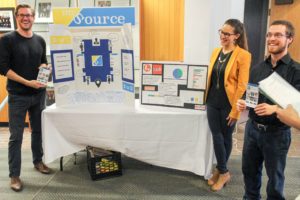 Many of the businesses focus on creating consumer goods that fill an unmet or underserved need in the marketplace. For instance, B3 is a consumer health company that offers simple, effective and environmentally friendly shampoo products made entirely from water, baking soda, and essential oils. Visitors to the trade show learned that the average shampoo contains more than 30 ingredients, many of which are known to cause adverse health and environmental effects. Another team of students with science and engineering backgrounds created Conscious Coffee Pods: small on the go servings of coffee in an algae-based pod that are shelf-stable, easily dissolved in water, and produce no packaging waste. Yet a third team created Flip Balm, an on the go algae-based sunscreen that attaches to a wristband made of recycled ocean plastic.
Many of the businesses focus on creating consumer goods that fill an unmet or underserved need in the marketplace. For instance, B3 is a consumer health company that offers simple, effective and environmentally friendly shampoo products made entirely from water, baking soda, and essential oils. Visitors to the trade show learned that the average shampoo contains more than 30 ingredients, many of which are known to cause adverse health and environmental effects. Another team of students with science and engineering backgrounds created Conscious Coffee Pods: small on the go servings of coffee in an algae-based pod that are shelf-stable, easily dissolved in water, and produce no packaging waste. Yet a third team created Flip Balm, an on the go algae-based sunscreen that attaches to a wristband made of recycled ocean plastic.